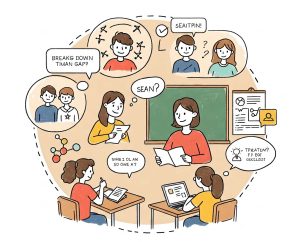Imagine a space where your teaching becomes a catalyst for transformation, where every learner’s journey is personalized and empowered. Language coaching offers you the framework, tools and techniques to create such an environment, whether you’re in a language classroom or training adult language learners.
Let’s take a look at these one by one.
1. Tailored Learning: Unlock the potential of every student by tailoring your approach to their unique needs and goals. Just as a coach collaborates with their clients, you can empower your learners by designing personalized learning paths that resonate with their aspirations.
2. Goal-Driven Empowerment: As a language coach empowers individuals to set meaningful objectives, you can guide your students to define their language-learning goals. This involvement enhances motivation and ownership, fostering a deeper commitment to the learning process.
3. Constructive Feedback: You will offer feedback that highlights strengths and growth areas. Your role transforms into that of a facilitator of growth, guiding students on their journey to a deepr awareness of language skills.
4. Personal & Professional Development: Implement coaching principles to build a supportive environment. Foster trust, encourage open communication and create a safe space where learners feel safe and secure to take risks and take on new challenges.
5. Self-Reflection: Utilizing coaching techniques in your language lessons encourages your students to engage in self-reflection and self-assessment. By guiding them to evaluate their progress and recognize their strengths and areas for improvement, you empower them to actively steer their language learning journey.
6. Active Listening and Questioning: As a teacher integrating coaching practices, you can leverage the power of active listening and impactful questioning in your classroom. Through open-ended questions and attentive listening, you prompt your students to think critically, communicate more fluently, and engage in meaningful conversations.
7. Confidence and Motivation: Language coaching methods enable you to nurture your students’ confidence and motivation throughout their language learning process. By providing constructive feedback, acknowledging their progress, and celebrating their successes, you create a positive and motivating learning environment that enables active engagement in learners’ learning journeys.
8. Autonomy: Empower your students to become self-directed learners. By integrating coaching techniques that foster critical thinking, problem-solving, and decision-making skills, you guide them toward autonomy in their language journey.
Gabriella Kovács MA, PCC






